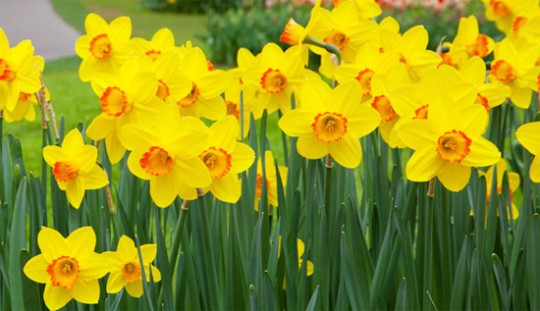Weekend Gardening: Tips for January
January 21, 2017
Here are gardening tips for the month of January from the IFAS Extension Service:
Flowers
- Refrigerated bulbs such as tulip, daffodil and hyacinth should be planted in prepared beds.
- Start seeds of warm season flowers late this month in order to have transplants in March.
- There’s still time to transplant some cool season annuals such as carnations, foxglove, pansies, petunias and snapdragons.
- Re-fertilize cool season flowerbeds, using a liquid or dry form of fertilizer. Be careful not to apply excessive amounts and keep granules away from the base of stems.
- Finish dividing crowded perennials. Don’t wait until spring for this job.
- Plant bare root roses immediately after they are purchased.
Trees and Shrubs
- Plant trees and shrubs. This is an ideal time of year for transplanting larger specimens.
- Plant bare root plants such as deciduous ornamental shrubs and trees.
- Prune dormant shade trees, if needed.
- Stick hardwood cuttings of fig, grape, honeysuckle, Althea, Catalpa, Forsythia and Wisteria.
Fruits and Nuts
- Apply dormant oil spray to peach, plum, nectarine and other deciduous fruit trees. This practice is necessary when growing the stone fruits in locations along the Gulf Coast. Note: This applies to the flowering peaches and cherries since they are susceptible to the same pests as their fruiting cousins.
- Plant bare root deciduous fruit trees
- Prune dormant fruit trees if needed
Vegetable Garden
- Start seeds of warm season vegetables late this month in order to have transplants in March.
- Lime (if needed), and begin preparing vegetable gardens for the spring planting.
- Cool season vegetables that can still be planted in the garden are: beets, broccoli, cabbage, carrots, cauliflower, celery, Chinese cabbage, kale, kohlrabi, leek, mustard, bunching onions, parsley, English peas, Irish potatoes, radishes and turnips.
- Irish potatoes can be started from January through March by planting seed pieces 3 to 4 inches deep in rows. Always purchase certified seed potatoes.
Lawns
- Check soil moisture during winter and water as needed.




Comments